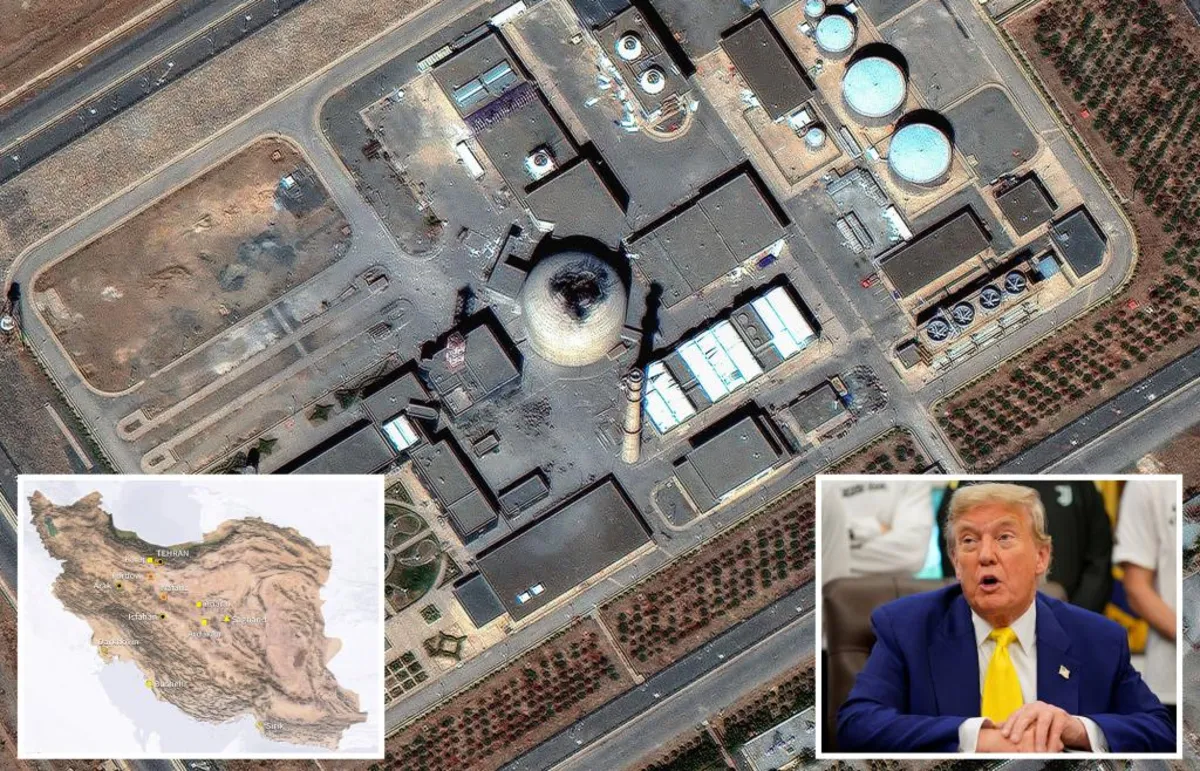
In a recent statement, President Trump announced that he will make a final decision regarding a potential military strike on Iran within the “next two weeks.” This announcement comes as the administration expresses hope for ongoing negotiations with the Iranian government. White House Press Secretary Karoline Leavitt conveyed Trump's sentiments during her daily briefing, emphasizing that a substantial chance for diplomatic discussions with Iran may influence his decision-making process.
Leavitt underscored the urgency of the situation, noting that Iran has the capability to develop a nuclear weapon at any moment, pending a directive from their Supreme Leader, Ali Khamenei. “Iran has all that it needs to keep a nuclear weapon,” she stated. “All they need is a decision from the Supreme Leader to do that.” This stark warning reflects the heightened tensions in the region and the critical nature of the discussions surrounding Iran’s nuclear ambitions.
As the situation unfolds, the conflict between Israel and Iran intensifies. Recent attacks have seen Iranian missiles targeting major Israeli hospitals and residential areas, prompting Israel to retaliate by striking significant nuclear sites. Amid these developments, former President Bill Clinton has urged Trump to “defuse” the Israel-Iran crisis and to halt the “outright constant killing of civilians.”
President Trump indicated that Iranian officials are interested in direct talks with him; however, he acknowledged the logistical challenges, as those negotiations would require travel from Tehran, which is currently facing heavy bombardment from Israeli forces. “If there’s a chance for diplomacy, he’s not afraid to grab it,” Leavitt assured reporters. Meanwhile, talks between Europe and Iran are set to take place in Geneva, Switzerland, bringing together Iran’s Foreign Minister Mohammad Javad Zarif and his counterparts from the UK, France, and Germany.
These negotiations are pivotal, as they aim to secure an agreement where Iran would cease uranium enrichment. Trump revealed that he had previously urged Iran to reach such a deal back in April, offering them a 60-day window for compliance, which they ultimately rejected. This refusal has led to Israeli military actions targeting key Iranian nuclear facilities and the elimination of prominent Iranian military leaders.
Israeli Prime Minister Benjamin Netanyahu has been vocal about the necessity of US military involvement in eliminating Iran’s remaining uranium stockpiles. He expressed skepticism about the effectiveness of negotiations with Iran, recalling past failures. “Whether the president wants to join or not — that’s entirely his decision,” Netanyahu stated during an interview. He also mentioned that the Israeli Defense Forces (IDF) possess the capability to neutralize two remaining nuclear sites without US assistance if required.
Ultimately, while President Trump is open to pursuing diplomatic solutions to prevent Iran from obtaining a nuclear weapon, he remains prepared to take military action if necessary. Leavitt reiterated, “I think the president has made it clear he always wants to pursue diplomacy. But believe me, the president is unafraid to use strength if necessary.”
As tensions escalate, Israel has specifically requested US military support to deploy bunker-busting bombs on the Fordow nuclear facility, which is strategically located within a mountain in Iran. President Trump has suggested that he is considering this option; however, he reaffirmed that his ultimate decision will come “seconds” before any potential military action is taken.
These developments underscore the complex and volatile nature of the situation in the Middle East, as both diplomatic avenues and military options are being weighed by the Trump administration.